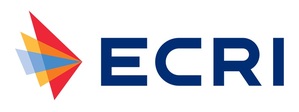AI has expanded from its early applications in medical imaging to influence virtually every area of healthcare, including diagnosis, documentation, and appointment scheduling. Even AI applications involving ancillary systems, which are not regulated as medical devices, can have a profound impact on patient care, ECRI experts say.
"The promise of artificial intelligence's capabilities must not distract us from its risks or its ability to harm patients and providers," said Marcus Schabacker, MD, PhD, president and chief executive officer of ECRI. "Balancing innovation in AI with privacy and safety will be one of the most difficult, and most defining, endeavors of modern medicine."
ECRI experts say AI systems can produce false or misleading results, or "hallucinations," and the quality of their output can vary across different patient populations. AI models can perpetuate any bias built into them, posing significant risks for underrepresented and historically marginalized communities.
"AI is only as good as the data it is given and the guardrails that govern its use," said Schabacker. "Healthcare stakeholders at all levels must think critically about the integration of AI, as they would with any new technology."
Rounding out the list are technology hazards identified in home care and acute care settings, information security applications, and the medical device supply chain. ECRI's Top 10 Health Technology Hazards for 2025, in rank order, are:
- Risks with AI-enabled health technologies
- Unmet technology support needs for home care patients
- Vulnerable technology vendors and cybersecurity threats
- Substandard or fraudulent medical devices and supplies
- Fire risk from supplemental oxygen
- Dangerously low default alarm limits on anesthesia units
- Mishandled temporary holds on medication orders
- Poorly managed infusion lines
- Harmful medical adhesive products
- Incomplete investigations of infusion system incidents
The full Top 10 Health Technology Hazards report, accessible to ECRI members, provides detailed steps that organizations and industry can proactively take to reduce risk and improve patient safety. An executive brief version is available for complimentary download at this link: Top 10 Health Technology Hazards for 2025 Executive Brief.
ECRI will host a live webcast about the top 10 hazards, open to the public, on December 5 at noon ET. A panel of medical device and healthcare safety experts will discuss the hazards' consequences for patient safety, clinician efficiency, and operational effectiveness, plus strategies for mitigating these risks. Register for the webcast at this link: Top 10 Health Technology Hazards for 2025.
Now in its 18th year, ECRI's Top 10 Health Technology Hazards report identifies critical healthcare technology issues. Since its creation in 2008, the list has supported hospitals, health systems, ambulatory surgery centers, and manufacturers in mitigating risks.
About ECRI
ECRI is an independent, nonprofit organization improving the safety, quality, and cost-effectiveness of care across all healthcare settings. With a focus on technology evaluation and safety, ECRI is trusted by healthcare leaders and agencies worldwide. ECRI is designated an Evidence-based Practice Center by the U.S. Agency for Healthcare Research and Quality. ECRI and the Institute for Safe Medication Practices PSO is a federally certified Patient Safety Organization as designated by the U.S. Department of Health and Human Services. In 2020, ECRI acquired ISMP to create one of the largest healthcare quality and safety institutions in the world. Visit www.ecri.org.
Media Contact
Yvonne Rhodes
ECRI Associate Director of Strategic Communications at [email protected].
SOURCE ECRI









Share this article